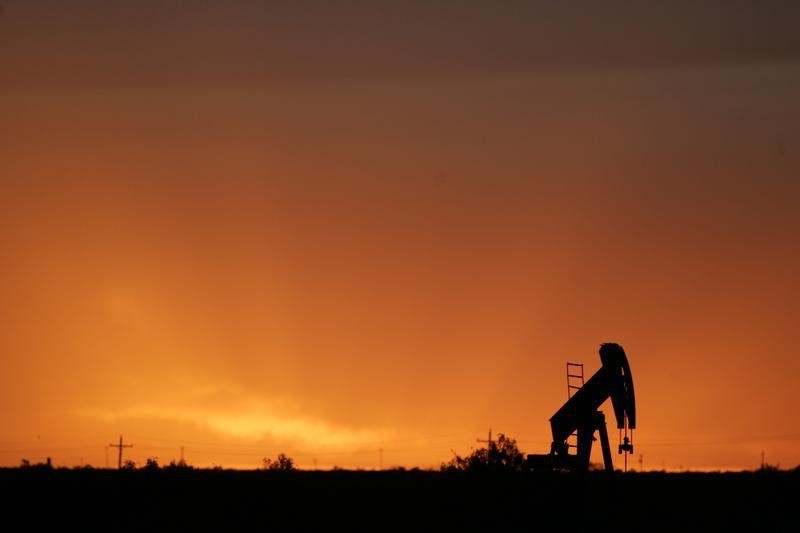By Peter Nurse
Investing.com -- Crude oil prices slumped Thursday, falling to the lowest levels in three months on concerns rising Covid-19 cases will stunt demand growth after a surprise increase in U.S. gasoline inventories.
By 9:50 AM ET (1350 GMT), U.S. crude futures were down 2.6% at $63.52 a barrel, falling below $65 for the first time since May, while Brent futures were down 2.5% at $66.56 a barrel.
U.S. Gasoline RBOB Futures were down 3% at $2.0845 a gallon.
Covid-19 cases are rising in areas of low vaccination rates globally, driven mainly by the circulation of the highly-transmissible delta variant, and this is prompting fears that the economic recovery, and thus demand for crude, will be curtailed.
“The spread of the delta variant … continues to cloud the demand outlook for oil,” said analysts at ING, in a note. “In addition, output data from China earlier in the week, which showed that Chinese refiners processed the least crude in 14 months does little to help sentiment.”
While most of the concerns have centered around Asia, and China in particular, coronavirus-related deaths have spiked in the United States over the past month.
The surprise 696,000-barrel build in gasoline supplies in the week to Aug. 13, reported Wednesday by the U.S. Energy Information Administration, added to these worries as this was the first increase in more than a month.
Applications for U.S. state unemployment benefits may have dropped for a fourth consecutive week, to a pandemic low of 348,000, but the Philadelphia Fed’s business activity index fell to 19.4, the lowest since December, from 21.9 in July, as growth in factory activity in the region slowed for the fourth consecutive month.
The strong U.S. dollar, rising on expectations the Fed will rein in its extraordinary monetary stimulus this year, is adding to the pressure as it makes oil more expensive to other currency holders.
Elsewhere, a federal judge on Wednesday reversed the U.S. government's approval of ConocoPhillips (NYSE:COP) planned $6 billion Willow oil development in Alaska, putting the massive drilling project in doubt.
